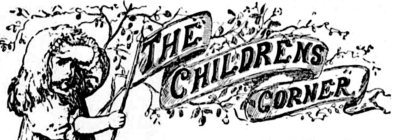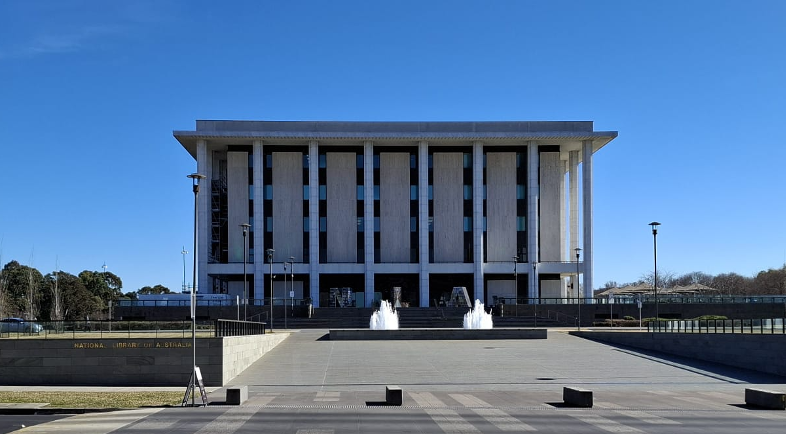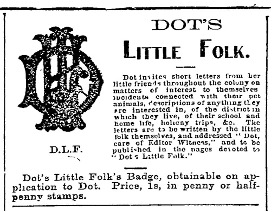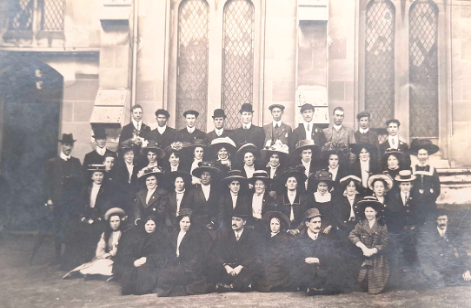‘In Search of Gold’: A Trip to the Archives
September 23, 2024
By Katie Donnelly

How does nineteenth-century settler newspaper fiction for children engage with the history of Gold Rushes in Australia and New Zealand? How can the periodical form be used to trace the growth of mining literature for children?
These are some questions that inspired my research trip to Australia and New Zealand. In July and August of 2024, I travelled to Dunedin, Canberra and Sydney to visit the archival collections in three of their libraries: The Hocken Collections (New Zealand), the National Library of Australia (Canberra), and the Mitchell Library (Sydney). The purpose of the trip was to find primary texts for my PhD project, which looks at nineteenth century colonial children’s literature based on goldmining. My research analyses the emergence of children’s fiction that depicts extractive labour in the periodical press and questions whether the reality of goldmining labour aligns with its literary fictionalisation for a child audience. Since starting my PhD, digital resources such as Papers Past and Trove have been invaluable in terms of sourcing material and corpus building. Searching through these digitised newspaper archives alerted me to the popularity of the “children’s corner” in periodical fiction and prompted a further investigation of children’s material that has not yet been digitised.
While all three archival collections offered surprising insights, the National Library of Australia provided a number of interesting children’s texts that address the questions raised above and proved to be the most fruitful in terms of compiling primary material.

National Library of Australia, Canberra
The library is home to the Marcie Muir Collection of Australian children’s books. The collection contains juvenile fiction published in Australia between 1800 and 2001, written by Australian authors, or are about Australia. The material was collected by Muir and supported her work in compiling the extensive Bibliography of Australian Children’s Books (1970).
As the collection contains over 6,000 records, I began by limiting my search to the period of 1842-1910 and subsequently establishing whether this parameter also contained any gold-related material. The search contained several novels for children that have mining or minefields as a focus. I was then able to use these findings to determine whether any of these juvenile novels began as a serial, or to locate additional works by the authors which may have been published in newspapers. What is most interesting about the findings is that the majority of gold-related material for children emerges in the later-half of the nineteenth century, rather than mid-century alongside actual discoveries of gold. This delay will serve as a point of analyses for my wider project.
The Mitchell Library also offered some interesting finds, ranging from children’s novels to more education-based local newspapers. These included The Australian School Paper for grades three to six, and The Commonwealth School Paper. These newspapers provided a sense of the teaching material circulated in settler schools throughout the Empire.
At the Hocken Collections in New Zealand, I struggled to identify newspapers with gold-related fiction for children. This has raised some interesting questions for my thesis as a whole, prompting me to consider the relative lack of the New Zealander goldmining adventure novel in comparison with the growing trend of the ‘gold fever’ adventure tale in nineteenth-century Australia. However, while visiting the collections, I was able to find some useful information regarding the publication history of a weekly children’s column titled ‘Dot’s Little Folk’ in the Otago Witness. This included some biographical information about Louisa Baker, the author behind ‘Dot’. Baker was also an editor and frequent contributor to the column under her other pseudonym ‘Alice’. The column began in 1886 and served as a space for children to write about their interests or concerns and to submit some original short stories or poems.

‘Dot’s Little Folk’ Column in Otago Witness

Dot’s little folk (Winter Show) (1910)
The findings from my research trip have been crucial to both my growing corpus of primary texts, and my understanding of the representation of mining labour in children’s periodical fiction. I look forward to incorporating these research findings into my PhD project.